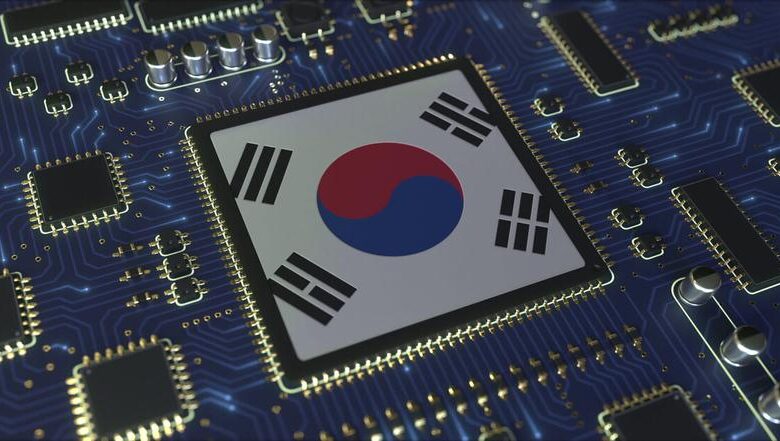Уряд Південної Кореї затвердив будівництво найбільшого у світі кластера для виробництва мікросхем у місті Йон’їн. Комплекс займатиме площу 7,28 кв. км, що дорівнює 1020 футбольним полям або половині території Беверлі-Хіллз у США, повідомляє Tom’s Hardware. Новий кластер включатиме шість заводів із виробництва чіпів, три електростанції та десятки підприємств, що постачатимуть матеріали, обладнання та комплектуючі. Спочатку проєкт Yongin Semiconductor планували реалізувати до 2029 року, але завдяки скороченню бюрократичних процедур будівництво стартує вже в грудні 2026 року. Очікується, що проєкт приверне приватні інвестиції в розмірі 300 трлн вон ($203,75 млрд), створить 1,6 млн робочих місць і забезпечить виробництво на суму 700 трлн вон ($475,41 млрд). Крім промислових об’єктів, на території кластера побудують житлові зони для працівників, перетворивши його на повноцінне місто. Церемонія затвердження проєкту відбулася в кампусі “Samsung Electronics” у провінції Кьонґідо. На заході були присутні представники “Samsung Electronics”, “SK hynix”, а також міністерств інфраструктури, транспорту й Корейської корпорації земельного та житлового будівництва. Під час презентації наголошувалося на стратегічному прагненні Південної Кореї зміцнити лідерство у світовій напівпровідниковій галузі.

The South Korean government has approved the construction of the world’s largest cluster for the production of microcircuits in the city of Yongin. The complex will occupy an area of 7.28 square meters. km, which is equal to 1020 football fields or half the territory of Beverly Hills in the USA, informs Tom’s Hardware.
The new cluster will include six chip factories, three power plants and dozens of companies that will supply materials, equipment and components. Initially, the Yongin Semiconductor project was planned to be implemented by 2029, but thanks to the reduction of bureaucratic procedures, construction will start already in December 2026.
The project is expected to attract 300 trillion won ($203.75 billion) in private investment, create 1.6 million jobs and generate 700 trillion won ($475.41 billion) worth of output. In addition to industrial facilities, residential areas for workers will be built on the territory of the cluster, turning it into a full-fledged city.
The project approval ceremony was held at the Samsung Electronics campus in Gyeonggi-do province. The event was attended by representatives of “Samsung Electronics”, “SK hynix”, as well as the ministries of infrastructure, transport and the Korea Land and Housing Corporation. During the presentation, South Korea’s strategic desire to strengthen its leadership in the global semiconductor industry was emphasized.





